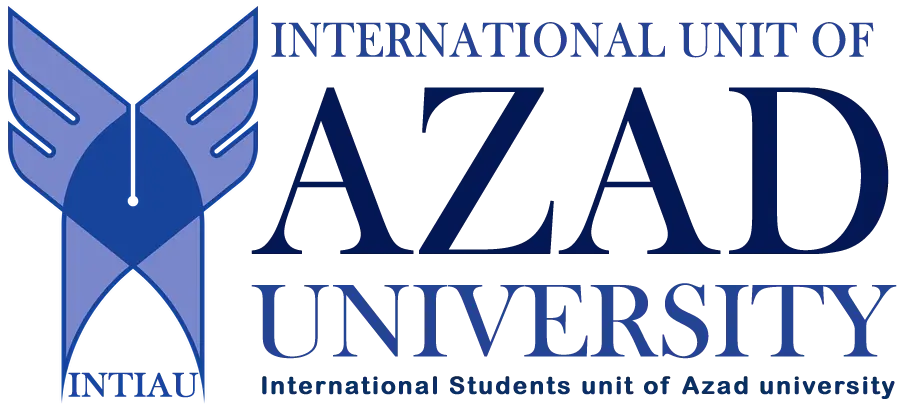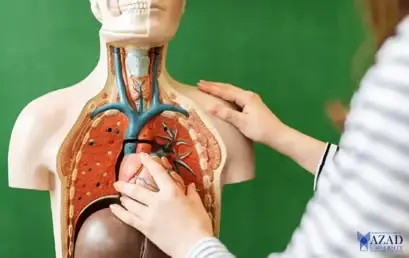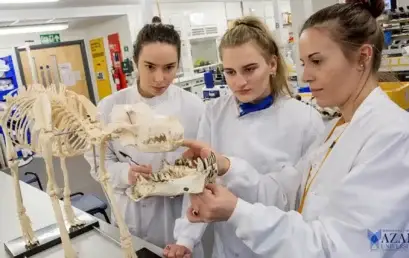Higher Education Management
Higher Education Management is a constantly evolving field that requires intentional leadership, effective communication, and strategic decision-making. As leaders in this field, it is our responsibility to navigate the complex challenges that come with overseeing institutions of higher education.
One of the key challenges we face is ensuring that our institutions are accessible and equitable for all students. We must work to dismantle systemic barriers that prevent marginalized communities from accessing higher education.
Another important area of focus is sustainability. As leaders in higher education, we have a responsibility to prioritize environmental sustainability and to model sustainable practices for our students and communities.
Finally, effective higher education management requires open and honest communication. We must prioritize transparency and establish channels for meaningful dialogue with all stakeholders, including students, faculty, staff, and community members.
Ultimately, the success of higher education management relies on our ability to lead with intention, prioritize equity and sustainability, and foster open lines of communication. By doing so, we can ensure that our institutions are well-positioned to serve our students and communities for generations to come.
Health Promotion and Education
Health promotion and education are two essential components that should be a part of everyone’s daily life. These practices can help individuals maintain good health and prevent the onset of chronic health conditions. Health promotion focuses on building healthy lifestyles that accommodate physical, emotional, and mental well-being, whereas education aims to provide people with the knowledge and skills they need to make informed decisions about their health.
Good health promotion practices include regular exercise, healthy eating habits, avoiding drug and alcohol consumption, getting enough sleep, and maintaining social relationships. Education, on the other hand, can offer guidance on how to identify early warning signs of health problems, how to manage stress, and how to seek appropriate medical attention.
By prioritizing health promotion and education, individuals can reduce their risk of developing chronic diseases, improve their quality of life, and increase their lifespan. Therefore, it is imperative that governments, institutions, and medical professionals prioritize health promotion and education in their policies and practices.
Anatomy and Embryology Course
As we are all products of embryonic development, it is fascinating to learn about anatomy and embryology. Anatomy is the study of the structure of an organism, while embryology is the study of the development and formation of an organism from conception to birth.
Embryology is a crucial field as it provides knowledge about the early stages of human growth. It gives us insights into how tissues and organs form and how they interact with one another. This information helps medical professionals better understand congenital abnormalities and developmental disorders. Embryonic stem cell research is also an essential area of study in embryology. This research has led to numerous medical breakthroughs, such as the development of treatments for spinal cord injuries, diabetes, and heart disease.
Similarly, understanding the anatomy of the human body is also vital. Medical professionals and researchers continue to study and learn about the complex structures of the body and how they function. This knowledge is used to diagnose and treat diseases and injuries.
In summary, anatomy, and embryology are critical fields to understand our existence. With continued research and advancement in these areas, we can continue to make strides in medicine and better understand the complexities of human development.
INTIAU Petroleum Economics
Petroleum Economics is the branch of economics that deals with the study of economic principles, theories, and concepts applied to the oil and gas industry. The study of petroleum economics focuses on maximizing the profit potential of oil and gas resources through efficient exploration, production, and distribution strategies. The oil and gas industry plays a crucial role in global economic development as it is the primary source of energy for transportation, manufacturing, and various industrial processes.
Petroleum economics involves analyzing financial and economic data to make appropriate investment decisions in the oil and gas industry. It also helps to understand the effects of policies such as taxation and regulation on the industry. Effective management of petroleum resources can also result in positive environmental outcomes by reducing the environmental impact of oil and gas exploration and production.
In conclusion, petroleum economics is a critical aspect of the oil and gas industry, and professionals in the field play an essential role in making informed investment and management decisions. It is a dynamic and constantly-evolving field that contributes significantly to the growth and development of our global economy.
French Literature INTIAU
French literature is renowned across the globe for its rich history, diversity, and artistic flair. From the epic tales of medieval literature to the existentialist philosophy of the 20th century, French literature has something for everyone.
One of the most famous works of French literature is Victor Hugo’s Les Misérables, a towering literary masterpiece that explores themes of poverty, justice, and redemption. This work has been adapted into numerous films, plays and musicals, cementing its place in popular culture.
Another classic is Gustave Flaubert’s Madame Bovary, which tells the story of a young woman who dreams of escaping her mundane existence but ultimately meets a tragic end. This work is considered a seminal work in the realist movement, which valued highly descriptive and passionate writing.
French literature also boasts a strong tradition of poetry, with renowned poets such as Arthur Rimbaud and Paul Verlaine creating works that explore human emotions with dazzling beauty and skill.
Overall, French literature is a vast and rich tapestry that has enthralled readers for centuries and will continue to do so for generations to come.
Health Economics INTIAU
Health economics is a growing field that is concerned with evaluating the effectiveness and efficiency of healthcare delivery systems and policies. It investigates how resources, such as money, time, and medical expertise, are allocated and utilized in the healthcare system.
In recent years, health economics has become more important than ever as healthcare policies and practices are being scrutinized for their effectiveness and sustainability. This has led to increased scrutiny of the costs associated with medical treatments, drugs, and procedures. Health economists are tasked with assessing the economic impact of different interventions and strategies and determining the most effective and efficient ways to deploy resources.
Furthermore, the COVID-19 pandemic has highlighted the importance of health economics in decision-making. Governments and policymakers around the world have turned to health economists for advice on how to allocate resources, such as medical supplies and personnel, in the fight against the pandemic.
Overall, health economics is a crucial field with far-reaching implications for patients, healthcare providers, and policymakers. It provides important insights that help to guide healthcare decision-making, allowing for effective and sustainable healthcare delivery.
Agricultural Economics at INTIAU
Agricultural economics is a discipline that focuses on the economic aspects of agriculture and related industries. At the National Technical University of Athens (INTIAU), this field of study takes an interdisciplinary approach that combines traditional economic theory with agricultural and environmental sciences.
Agricultural economics at INTIAU offers students the opportunity to explore the complexities of global food systems, including issues related to market efficiency, sustainability, and policy. With a combination of classroom learning, hands-on research, and practical experience, students gain the skills needed to become successful professionals in a variety of agricultural industries.
Through this program, students are exposed to cutting-edge research and innovative solutions to sustainable agriculture. They also have the opportunity to work alongside experienced faculty members who are leaders in their field.
If you’re interested in pursuing a career in agriculture or related industries, consider a degree in agricultural economics at INTIAU. This field is essential to ensuring the sustained growth and development of agriculture as a viable industry, and can provide exciting career opportunities in a variety of sectors.
Communication Science Course
Communication Science is a fascinating area of study that explores the ways in which humans interact and exchange information. It seeks to understand not just what people say, but also how they say it, in order to uncover the underlying messages and meanings that lie behind our words.
As we delve into the field of Communication Science, it quickly becomes clear just how crucial effective communication is to virtually every aspect of our lives. From personal relationships, to business interactions, to political and cultural issues, our ability to communicate clearly and persuasively plays a pivotal role in our success and happiness.
One of the key areas of focus in Communication Science is the study of nonverbal communication. This includes tone of voice, facial expressions, body language, and more. By studying these subtle cues, we can better understand how people truly feel and what they truly mean, even when their words might be saying something different.
Ultimately, the study of Communication Science offers a rich and rewarding path towards a deeper understanding of the ways in which we interact with one another. By gaining a deeper understanding of human communication patterns, we can become better communicators ourselves, and in doing so, unlock the full potential of our personal and professional lives.
INTIAU Applied Chemistry
Applying Chemistry to the Real World: A Closer Look at INTIAU Applied Chemistry
Chemistry is an incredibly important field that is integral to many areas of modern life. From pharmaceuticals to materials science, from environmental science to food technology, chemistry underpins a wide variety of industries. It is with this in mind that the INTIAU Applied Chemistry program was created – to help students harness the power of chemistry and apply it to the real world.
At INTIAU Applied Chemistry, students learn how to approach problems with a chemical mindset, using the latest research and techniques to develop new products, improve existing processes, and solve complex challenges. With a focus on hands-on learning and experiential education, students get the chance to work with cutting-edge equipment and collaborate with industry partners to develop solutions to real-world problems.
Whether you’re interested in pursuing a career in pharmaceuticals or materials science, environmental science or food technology, chemistry is a crucial component of many industries. The INTIAU Applied Chemistry program can help you harness the power of chemistry and apply it to the real world, bringing new insights and innovations to life. So why not explore the possibilities of what applied chemistry can achieve?
Azad University Animal Biology
Azad University’s Animal Biology department is an exciting place to study the intricate workings of the animal kingdom. This program offers students a broad range of courses that cover key topics such as animal physiology, genetics, behavior, and ecology. In each course, students learn about the latest research and trends in animal biology, which is vital for understanding the complex relationships between animals and their environment.
Through hands-on laboratory work, students have the opportunity to develop a deep understanding of the natural world around them. They analyze animal specimens and conduct experiments to study their behavior, physiology, and adaptation to their environment. Students also get a chance to participate in field trips and research projects, further enhancing their knowledge of animal biology.
A degree in animal biology opens up various career paths for students, including opportunities in wildlife management, veterinary medicine, and research. Graduates of this program go on to make meaningful contributions to our understanding of the natural world and its inhabitants.
Overall, the Animal Biology program at Azad University is an excellent choice for students passionate about animal welfare and conservation. The program offers world-class training and opportunities to make a difference in the lives of animals and the environment.










